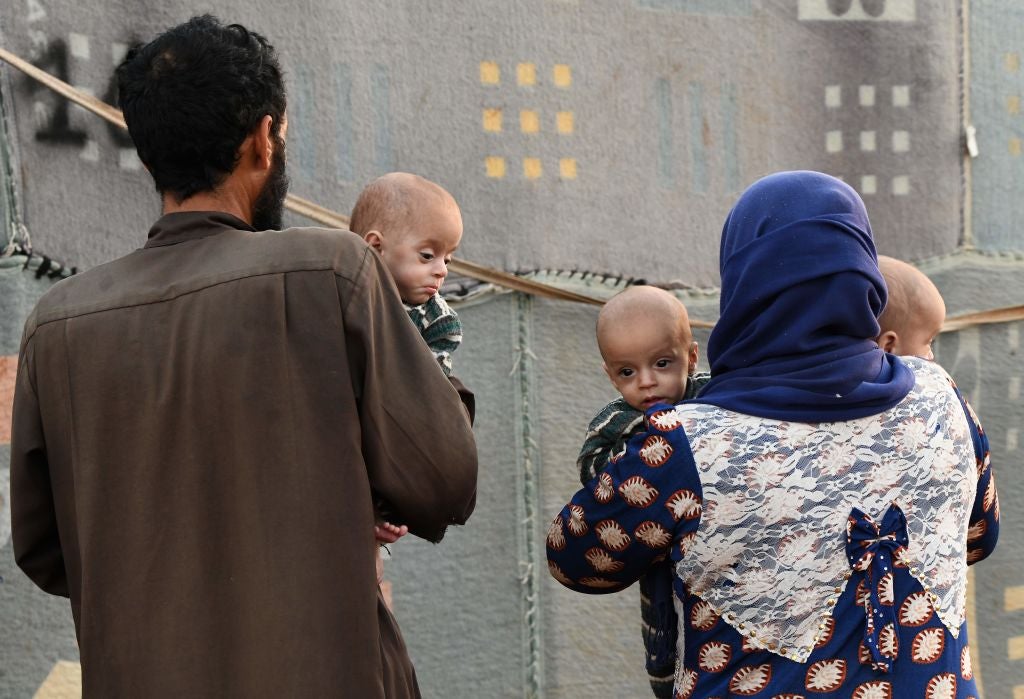The global nutrition crisis is at tipping point – the UK must act now to save lives and livelihoods
As we leave the European Union, it’s vital Britain maintains its financial and political commitments to fighting malnutrition, as coronavirus could tip millions more people into chronic hunger

The pandemic risks shattering decades of hard-won gains in the global fight against malnutrition.
Since the turn of the millennium, thanks to concerted international efforts, 55 million fewer children under five have suffered from stunting, one of the most severe forms of chronic malnutrition.
Yet estimates suggest the coronavirus is reversing this trend and last year alone could have tipped 130 million more people into chronic hunger and left an additional 6.7 million children under 5 acutely malnourished.
The UK is not immune to this crisis. The pandemic and the impact of lockdowns and restrictions have exposed the fault lines and inequalities in society. Pressure on local food banks is on the rise and for the first time in its 70-year history, UNICEF is mounting a domestic response to feed hungry children in the UK hit by the pandemic.
With the recent surge in Covid-19 cases in the UK and a new lockdown announced by the prime minister, the situation is only expected to get worse.
The sobering truth is that malnutrition is entirely preventable. It is a huge injustice and indeed a scandal that so many are not able to access enough good food. Malnutrition is still a contributing factor in nearly 3 million deaths of children under five each year, making it one of the leading causes of child mortality worldwide.
Poor nutrition doesn’t just cause death and disease: it affects many other critical development outcomes. Children who are malnourished in early life, including those born to malnourished mothers are at a disadvantage in life from the very start. They are likely to learn less at school and earn less as adults, which translates to slower economic growth and perpetuation of the cycle of poverty.
Every single malnourished child represents both a tragedy and a missed opportunity. Gender inequality further exacerbates this vicious cycle, with one in three adolescent girls and women globally affected by anaemia.
Good nutrition is fundamental to improving immunity and protecting against disease. That’s why programs that target malnutrition are consistently found to be among the most cost-effective in global health and development – with every £1 invested yielding an average of £16 in return. It is a win-win investment.
For years, the UK has been the world's largest government donor for global nutrition and has played an indispensable leadership role. The UK hosted the first Nutrition for Growth Summit in 2013, which resulted in £17 billion in commitments from donors – roughly 13 times the UK’s individual contribution.
Now more than ever – when the global nutrition crisis is at a tipping point with millions of lives hanging in the balance – the UK needs to retain its vital global leadership role. The colliding impacts of climate change and Covid-19 on nutrition outcomes make the imperative to act even more urgent.
This means continuing to fund programmes providing prenatal vitamins to expectant mothers, breastfeeding support, and emergency therapeutic foods, which keeps severely malnourished children alive and can nurse them back to full health in a matter of weeks.
The UK’s current funding commitments to tackle malnutrition were due to expire at the end of last year. Renewing investment at the same level – £120 million per year, or just over 1 per cent of the aid budget for 2021 – would allow the UK to reach another 50 million children, women, and adolescent girls, and save more than 800,000 children over the next five years.
With these incredible gains to be made, the UK’s continued leadership to tackle malnutrition at home and globally is essential, including playing a key role at global nutrition pledging moments like the next Nutrition for Growth Summit due to take place in Tokyo in December.
British investments in global nutrition and healthy diets are vital in their own right, as well as an important part of the puzzle in the fight against coronavirus, a key plank in broader development progress and economic growth, and part of the set of interventions needed to build sustainable and resilient societies and food systems.
As the UK leaves the European Union and seeks to strengthen its leadership on the world stage, maintaining a financial and political commitment to fighting malnutrition, and all the benefits that brings for its own citizens and communities around the world, is absolutely the right thing to do.
The progress in the global fight against malnutrition was one of the great success stories in international development over the last ten years. We must make sure it stays that way.
Peter Piot is director of the London School of Hygiene & Tropical Medicine





Join our commenting forum
Join thought-provoking conversations, follow other Independent readers and see their replies